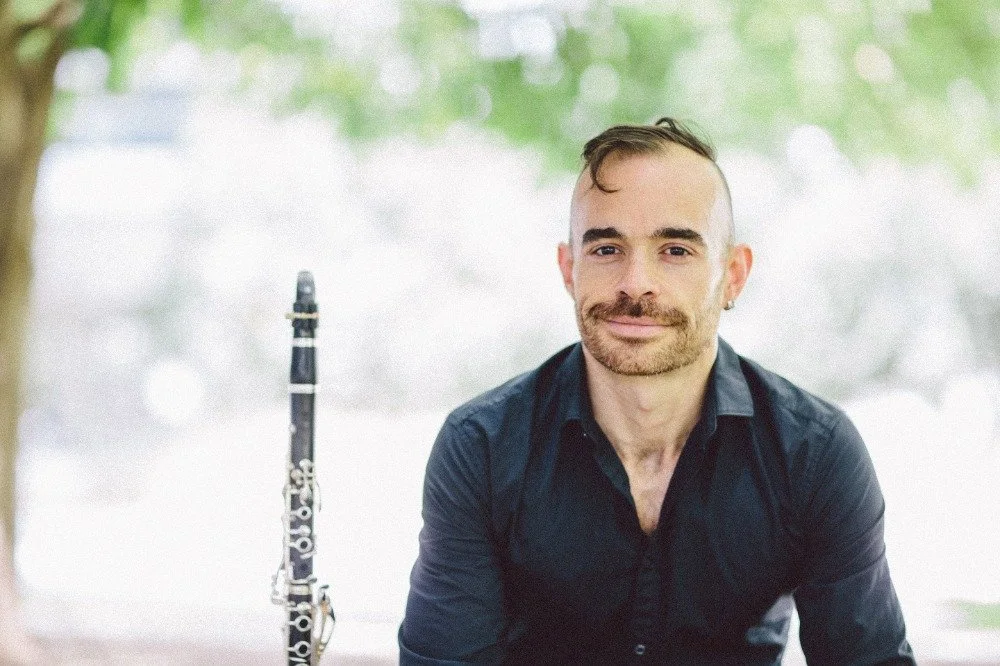Almost by accident.
For people who aren’t musicians, there is a common misconception out there that a music virtuoso is “born with it”. And perhaps there are a handful (or two) of musicians in history that indeed were. But typically, it’s not that simple.
The art form of music is incredibly vast. There are so many different genres to listen to, instruments to play, artists to choose from, areas to study, music that’s been written that you’ve yet to discover. So it’s no wonder why many music virtuosi spend years studying and exploring this audible world, before finding their calling and even then, there is always more to discover, sometimes by accident. Dr Ashley William Smith’s story is one such brilliant, if not humbling example.
He emerged as one of Australia’s most sought after young musicians, gaining international recognition as a renowned Australian Clarinettist, performing throughout USA, Asia and Europe. A Churchill Fellow, Dr Smith is a Laureate of two of Australia’s most prestigious prizes in the Classical Music world; ABC Symphony International Young Performer Award, and the Music Council of Australia’s Freedman Fellowship. On his homeland, he has performed with major Australian orchestras and groups, including the Tasmanian Symphony Orchestra, Queensland Symphony Orchestra, West Australian Symphony Orchestra and the Australian String Quartet. He’s even been dubbed a ‘Rising Star’ by the leading international clarinet manufacturer Buffet-Crampon, and is officially recognised as a Buffet-Crampon artist.
And believe it or not, Dr Smith’s incredible career did not start with the clarinet.
We asked Dr Smith some questions about his musical journey and were humbled and encouraged by his answers, including the highlight of being able to teach music to the next generation.
Dr Ashley William Smith performs with Cygnus Arioso for Perth Summer Classics 2022, January 30.
You didn’t start as a clarinettist, but as a composer. Can you remember what pieces you listened to or studied, that made you want to master the clarinet?
I fell into becoming a performer almost by accident - I literally just spent too much time practicing in my early 20s not to try and take performing as far as I could. The piece that had the greatest impact on inspiring me to perform was Messiaen's Quartet for the End of Time. The pieces that taught me most about clarinet technique are the Bach Sonatas and Partitas for violin and Puccini operas.
Was clarinet the first instrument you took interest in playing?
My first instrument was the flute, which I started when I was eight years old. To this day, whenever I'm nutting-out a piece of music in my head, my brain automatically processes it as if I were playing it on the flute. I often watch the UWA Conservatorium's flute class, taught by Diane Riddell and Michael Waye. They are both expert performers and teachers and have been wonderful mentors for my own woodwind teaching.
To any aspiring clarinettists out there, are there any pieces out there that you recommend learning to further improve their knowledge and skill of the clarinet?
My friend Lachlan Skipworth has written for me many works which challenge what I thought was possible for the clarinet. Lachlan has discovered a new soundworld for the instrument.
You’ve played in chamber ensembles, orchestras and been a features soloist across the world. How do all those experiences differ from one another for you personally?
To be honest, all these performance contexts are remarkably similar. The foundation of all good music-making are the core skills of chamber music performance - listening (the most important!), responding, balancing, generosity, accountability, trust, not pushing the sound, singing. With a thorough understanding of the art of chamber music, a performer is essentially prepared for anything.
What composer or genre/what was it about classical music that persuaded you to become a performer?
Surprisingly, I know that I'm a baroque musician at heart. My first musical love was Vivaldi and I'm obsessed with Handel. If I could start my career again, I'd train as a singer and specialise in baroque music.
What is the most rewarding thing about your jobs as a performer, lecturer/tutor/teacher and scholar?
The highlight of everything I do is watching my UWA students in their graduation recitals - it is an incredibly humbling privilege to watch someone grow and shine through music. Another favourite part of my job is presenting preconcert talks to the WASO audience. Sharing a love and curiosity for music with such an enthusiastic and inquisitive crowd is an enormous pleasure.
We are incredibly excited to be performing with Dr Ashley Smith in our first concert of the year, Perth Summer Classics, on the 30th of January 2022.
Tickets are available via the Perth Concert Hall’s website: https://www.perthconcerthall.com.au/events/event/Cygnus-PSC22
Author: Leanne Puttick


